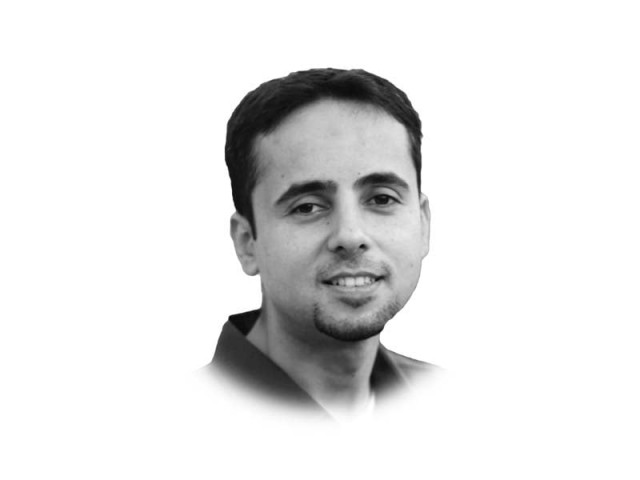Dutch polls: a litmus test of Europe’s populism?
The Dutch election of March 2017 was seen as a ‘litmus test’ in mainstream media for far-right populism

The writer is a senior research Fellow at Area Study Centre for Europe, University of Karachi. He tweets @saj_ahmd
Wilders’ PVV party is considered fiercely anti-EU (Eurosceptic) and anti-Islam. The opinion polls before the election predicted that most of the seats would go to the PVV. Wilders’ anti-EU and anti-Islam rhetoric — pledging for ‘de-Islamisation of the Netherlands”, ceasing immigration from Muslim countries, banning the Holy Quran and ordering a shut-down of all mosques — had a wide appeal in the Netherlands. He had also manifested his inclination for a ‘Nexit’ — a Netherlands version of Brexit — that appears to have led to his eventual election loss. The high turnout of 80.2% is believed to be one of the reasons behind the victories of pro-EU and liberal parties.
European leaders were swift to express their relief over the election results. German Chancellor Angela Merkel expressed that “I was very glad, and I think many people are, that a high turnout led to a very pro-European result.” French President Francois Hollande, whose country bore most of the brunt for a recent wave of violence, termed the result a “clear victory against extremism”. Hailing the Dutch people, European Commission President Jean-Claude Juncker said that they voted for “free and tolerant societies in a prosperous Europe”.
While the VVD won most of the seats — 33 in a 150-member parliament — it is eight seats below its record in the 2012 elections. PVV was restricted to 20 seats but gained five more seats than the previous polls. Wilders expressed that he had higher hopes, and pledged that “this patriotic spring will happen”. The anger and insecurity of the electorate, as is the case in many countries, helped Wilders to bag votes. On the other hand, the diplomatic row between Amsterdam and Ankara, just before the polls, might have worked in favour of Rutte. According to Andre Krouwel, a political scientist at the Amsterdam Free University, Rutte’s stance against Ankara gave off a message to the electorate that he would defend the interests of the Netherlands against foreign pressure.
Far-right populism is clearly on the rise in Europe. Among the reasons behind this phenomenon are considered to be the ongoing refugee crisis and the recent wave of violence and terrorism in a few western European states such as Germany, Belgium and France — although the Netherlands has not experienced such violent incidents so far. On the other hand, the refugee crisis has brought many challenges to the EU member states and rose to become a widely divisive issue in terms of policymaking. Furthermore, as a result, right-wing parties found new political space and their anti-immigrant propaganda proved to be a popular alternative within European countries.
Meanwhile, the Dutch people seem to have defeated this wave of far-right populism, at least in the recent election. However, the threat still looms in other EU member states. The impact of the far-right populism is yet to be tested during the upcoming elections in two major EU states, France and Germany. In a crucial contest, France is going to polls in April 2017. The National Front, a far-right and anti-immigration party, is believed to be a tough contestant. Its leader, Marine Le Pen, has gained popularity by expressing anti-Islamic sentiments, especially in the wake of the Nice attack of July 2016, which she promptly blamed on ‘Islamist fundamentalists’. Similarly, the German right-wing Alternative for Germany (AfD) party is expected to make inroads in the German Parliament for the first time. The AfD has censured Chancellor Merkel for her open-door policy towards refugees and has increased its following over the years. The general elections of Germany are scheduled in September 2017.
The voting trend in the upcoming elections of these two EU founding member states would be critical in determining the future course of European right-wing parties. As the defeated Dutch Labour leader, Lodewijk Asscher, said, “populism is not over” and the victorious Dutch Prime Minister, Mark Rutte, perhaps rightly termed the Dutch poll, ahead of the German and French election, as a “quarter-final” against populism.
Published in The Express Tribune, April 1st, 2017.
Like Opinion & Editorial on Facebook, follow @ETOpEd on Twitter to receive all updates on all our daily pieces.














COMMENTS
Comments are moderated and generally will be posted if they are on-topic and not abusive.
For more information, please see our Comments FAQ